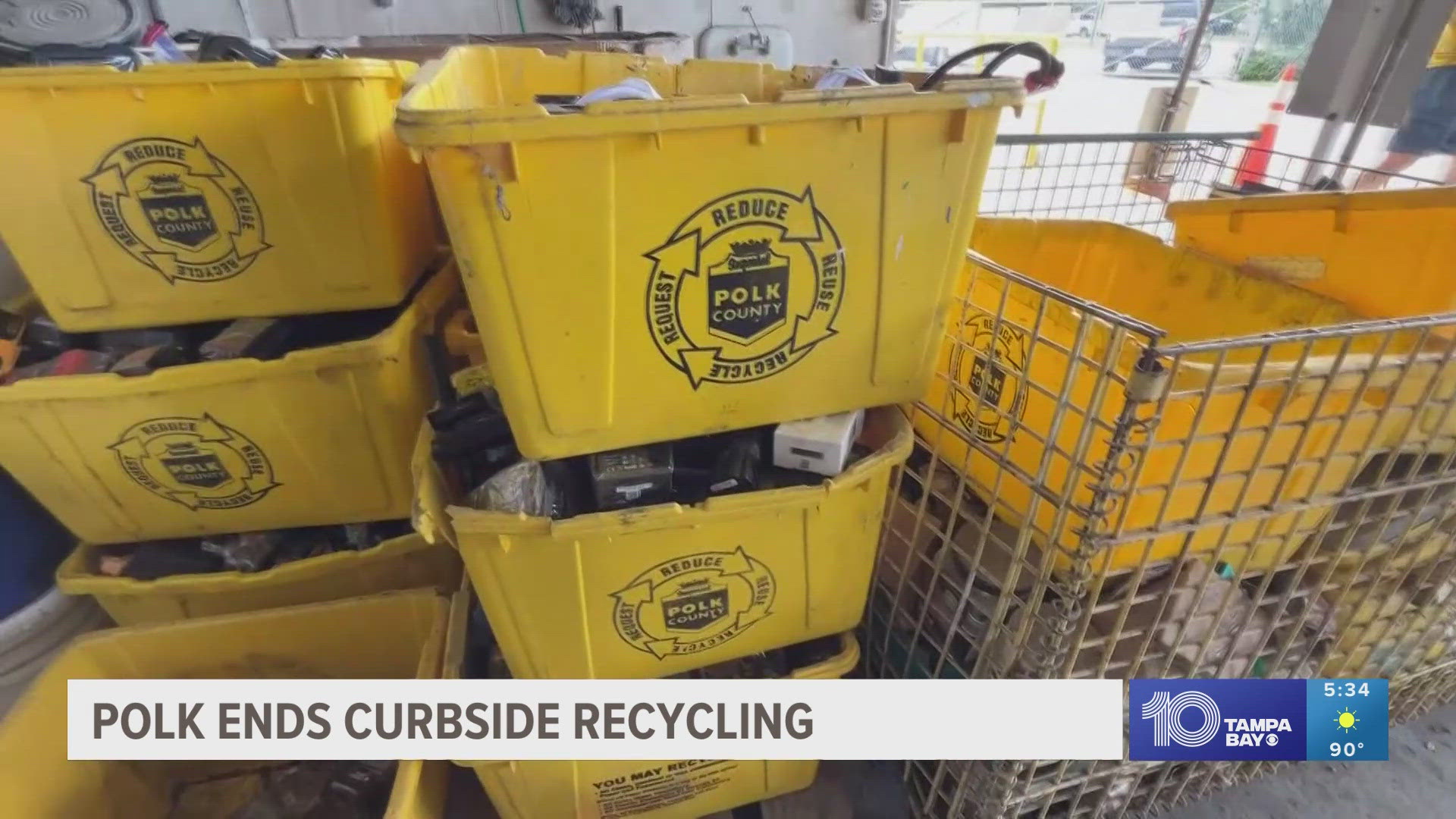POLK COUNTY, Fla. — After more than 20 years, Polk County is about to end its residential recycling service, saying it's just gotten too expensive because of global market issues.
But, even as they end one environmentally friendly program, they're introducing a pair of major landfill improvements which they claim are good for the environment and will save taxpayers money as well.
Dale Henderson, Director of Polk County’s Solid Waste Division, says about two years ago a worldwide shift in recycling led to processors becoming far more particular about the materials they would accept. And that, he says, sent costs soaring.
“With the market, the global market collapse, there was a high degree of focus on the purity of recyclable material,” Henderson said.
Polk County officials, not wanting to appear environmentally unfriendly, are simultaneously unveiling two green initiatives.
The first is a facility on the landfill property, privately built by Opal Fuels. The plant converts gas produced by the landfill into fuel that can be sold and power vehicles like garbage trucks.
It means less pollution, and at the same time, is estimated to add half a million dollars a year into the county’s coffers.
“You will get localized emissions reductions. As well, in the area, the CNG is used as a diesel replacement fuel,” said Allen Hunt with Opal Fuels.
“So, you are talking from a diesel truck that went out putting RNG into power a CNG fleet -we’re seeing over a 50% reduction and greenhouse gas emissions,” said Mike Hanely with GFL Environmental, one of two hauling companies Polk contracts with for trash collection.
A second initiative involves leachate — which is dirty water that seeps down and collects at the bottom of the landfill.
Instead of trucking tens of thousands of gallons a week to water treatment plants at a cost of more than $2 million a year, the county worked with the University of Florida to create an onsite man-made filtering system.
The process turns the leachate into water which is clean enough to seep its way back into the aquifer.
“And will be treated on-site, so there's no need to have a third party treating it for transport,” said Dreyton Lott worked with the University of Florida College of Engineering to create the facility. “And there's less reliance on third parties that are controlling the price,” said Lott.
For those in Polk County who want to continue recycling, they can still drop off those materials themselves at the landfill.
The county is also soliciting private companies that could offer the option of providing curbside recycling services. Residents could then subscribe to and pay for that service on their own if they so choose.
Some residents have complained their sanitation bills aren’t going down although recycling service is being eliminated.
Henderson says that’s because the last time contractor rates were calculated was about seven years ago, and costs have risen significantly since then.
Henderson also says they have not ruled out the possibility of restarting the curbside recycling program again sometime in the future, as technologies are currently being explored which may help bring cost down to a more affordable level.

